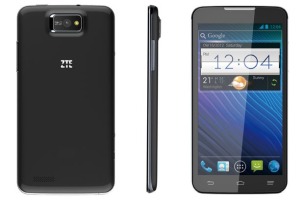Counterfeit technology is nothing new. In fact, the IT industry has somewhat reconciled with the parallel market, grudgingly submitting to the philosophy, ‘imitation is the highest form of flattery’. However, when business starts to suffer, the romance jumps off the cliff.
It was late July 2011, when a blogger at BirdAbroad wrote a casual post about a really legit looking Apple store in the city of Kunming, in Southwest China – only that it wasn’t really an Apple store. Little did she know that she would trigger the ultimate showdown between Apple and people who like to dress up as Apple. The “Apple” store, with the Apple swag on, was in fact a counterfeit store, which though sold real Apple devices and looked like an Apple store. was not an authorized outlet. The store. one of many, appeared so real, that even some of the employees didn’t know that they weren’t working for Apple. Imagine the heartbreak – thinking you are working for Steve Jobs, only to end up being slapped with a lawsuit from the man himself.
Yes, following the post, Apple filed a trademark infringement suit against a number of defendants, including 50 John Does and unnamed businesses. Chinese officials shut down two unauthorized stores in Kunming following the story’s backlash; however, the reason for their closure was quite unusual. According to local reports, the stores were shut down not because of trademark infringement, or because they were engaged in unauthorized retail, but because they did not have proper business permits. Shortly after, three other stores were identified to have Apple logos plastered all over them, but they were let off because they did not sell counterfeit products, and had proper permits.
Surprisingly, the store mentioned in the initial blog post was not ordered to shut down because it decided to apply for a reseller license with Apple. In the aftermath of the story. Kunming officials cracked down on another 22 fake Apple stores, and stopped them from using Apple’s trademark logo. Reaction to the move has been divided. While Ars Technica sees hope in the Kunming crackdown, many feel that the operation is somewhat hollow: and judging from the way stores are complying to government orders, it is easy to side with the latter.
Most stores are sluggishly covering the logo with paper, and many employees are in denial. “There is no Chinese law that says I can’t decorate my shop the way I want to decorate it,” says one employee, who seemingly knows a thing or two about law. Sounds fair – in a world where there is no such thing as copyright and trademark infringement! So good luck fighting your case! Seeing how China has repeatedly received an honorary mention in the US Trade Representative’s annual Priority Watch List – a report that highlights countries that are believed to be aggressive intellectual property (IP) offenders – this story barely comes as a surprise. And incase you are wondering, yes – Pakistan too has been inducted into the IF hall of shame.


